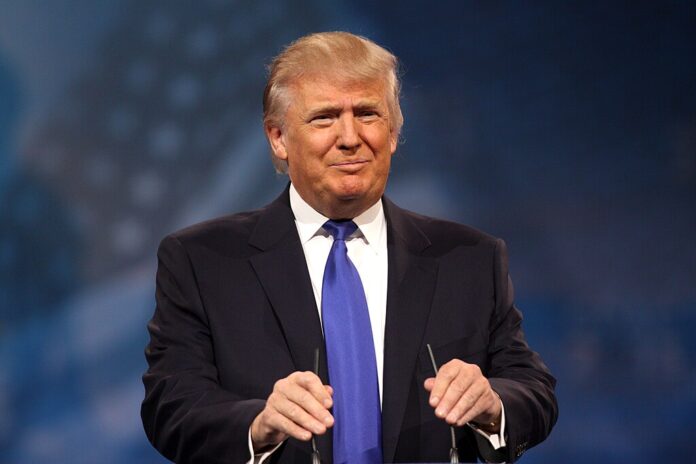In a controversial speech before election day, former President Trump makes incendiary remarks regarding the media and reflects on his departure from the White House
In a charged rally in Lititz, Pennsylvania, former President Donald Trump stirred controversy just two days before the pivotal presidential election, delivering a speech that veered into conspiratorial territory. His remarks, characterised by profanity and incendiary claims, raised eyebrows and prompted concern among political observers and voters alike.
Trump’s speech took a dark turn as he discussed the treatment of reporters, suggesting that the media landscape had become so hostile that journalists were being shot. This assertion not only highlighted his ongoing antagonism towards the press but also appeared to endorse a violent narrative surrounding media coverage. Such comments are reminiscent of his past rhetoric, which has often painted journalists as adversaries rather than as essential components of a functioning democracy.
“I shouldn’t have left the White House,” Trump lamented, echoing sentiments that he has expressed on multiple occasions since his loss to Democrat Joe Biden in 2020. His refusal to accept the legitimacy of the election results has remained a focal point of his messaging, energising a base that continues to grapple with the outcome. This nostalgia for his time in office resonates deeply with supporters who feel that the Biden administration has strayed from the policies they favour.
Embed from Getty ImagesThroughout his speech, Trump leaned into themes of grievance and victimhood, painting himself as a martyr for his supporters. This approach has been a staple of his campaign strategy, which seeks to unify his base around a shared sense of loss and betrayal. By conjuring images of a media environment hostile to conservative voices, he aims to rally his followers in a way that reinforces their loyalty and commitment to his cause.
The remarks drew sharp criticism from various quarters, with detractors arguing that Trump’s incendiary language poses a threat to public discourse and safety. Many observers noted that such rhetoric, especially in the context of a deeply polarised political landscape, could incite further division and even violence. The implications of his words resonate beyond the rally itself, prompting discussions about the responsibilities of political leaders to promote civility and respect for democratic institutions.
As Trump continues his campaign trail, his ability to engage with voters remains a double-edged sword. While his provocative statements energise his core supporters, they also alienate moderates and undecided voters who may be put off by his combative style. In a race that is tightening as Election Day approaches, the balance between enthusiasm and extremism will be crucial for both candidates.
At the same time, Vice President Kamala Harris is also on the campaign trail, presenting a stark contrast to Trump’s approach. Harris’s rallies focus on positive messaging and the importance of community, emphasising the need for unity and progress in the face of challenges. This dichotomy in campaigning styles encapsulates the broader ideological divide that characterises the current political landscape.
As the nation prepares to vote, the stakes could not be higher. Trump’s recent remarks serve as a reminder of the contentious atmosphere surrounding this election, with both candidates vying for the support of an increasingly divided electorate. The outcomes of these final hours of campaigning will set the stage for the future direction of American politics, as voters grapple with the implications of their choices at the polls.
In a rapidly evolving political climate, Trump’s rhetoric continues to capture attention and ignite debate, leaving many to wonder how these dynamics will play out on Election Day. As Americans head to the ballot boxes, the impact of such polarising statements will undoubtedly be a critical factor in determining the election’s outcome
